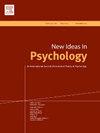Environments “develop”: Infant motor development can inform the study of physical space
IF 2.9
3区 心理学
Q2 PSYCHOLOGY, EXPERIMENTAL
引用次数: 0
Abstract
Infant development is tied to the physical environment. Indeed, all infant behavior—movement, exploration, object play, social interaction—occurs in the context of a physical space. Nonetheless, researchers know surprisingly little about how the environments that infants inhabit come to be. Researchers in other fields of study (e.g., architectural design, urban planning, classroom curation, playground construction) have focused on space as a construct of interest and gleaned important information about interactions between the composition of spaces and the behaviors of those who occupy them. In particular, the organization of a space (its contents and layout) can both create and constrain opportunities for a host of behaviors for infants and children. This review presents an integrated synthesis of multiple literatures regarding the physical environment and its interactions with human behavior. I argue for a developmental approach for the study of how spaces develop; that is, how the spaces occupied by infants are changed over time by adult caregivers. Using several existing theoretical perspectives, I suggest a conceptual framework anchored to infant motor development—the process by which infants acquire new motor skills over time—as a model system for the study of infants’ developing spaces. Collectively, this review highlights the importance of considering space as part and parcel of infant development.
环境 "发展":婴儿运动发展可为物理空间研究提供启示
婴儿的发展与物理环境息息相关。事实上,婴儿的所有行为--运动、探索、玩物、社交--都是在物理空间的背景下发生的。然而,研究人员对婴儿居住的环境是如何形成的却知之甚少。其他研究领域(如建筑设计、城市规划、教室设计、操场建设等)的研究人员都将空间作为一种关注的建构物,并收集了有关空间构成与占用者行为之间相互作用的重要信息。特别是,空间的组织(其内容和布局)既能为婴幼儿的一系列行为创造机会,也能限制这些机会。本综述综合了有关物理环境及其与人类行为相互作用的多种文献。我主张用发展的方法来研究空间是如何发展的;也就是说,婴儿所占用的空间是如何随着时间的推移而被成人看护者所改变的。利用现有的几种理论视角,我提出了一个以婴儿运动发展为基础的概念框架--婴儿随着时间的推移获得新运动技能的过程--作为研究婴儿发展空间的模型系统。总之,这篇综述强调了将空间视为婴儿发展的重要组成部分的重要性。
本文章由计算机程序翻译,如有差异,请以英文原文为准。
求助全文
约1分钟内获得全文
求助全文
来源期刊

New Ideas in Psychology
Multiple-
CiteScore
4.80
自引率
3.80%
发文量
37
期刊介绍:
New Ideas in Psychology is a journal for theoretical psychology in its broadest sense. We are looking for new and seminal ideas, from within Psychology and from other fields that have something to bring to Psychology. We welcome presentations and criticisms of theory, of background metaphysics, and of fundamental issues of method, both empirical and conceptual. We put special emphasis on the need for informed discussion of psychological theories to be interdisciplinary. Empirical papers are accepted at New Ideas in Psychology, but only as long as they focus on conceptual issues and are theoretically creative. We are also open to comments or debate, interviews, and book reviews.
 求助内容:
求助内容: 应助结果提醒方式:
应助结果提醒方式:


